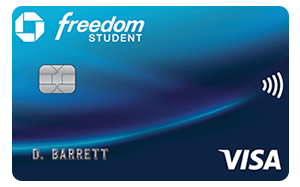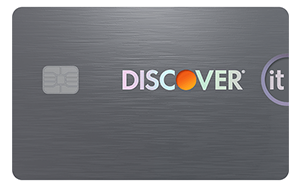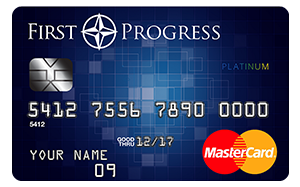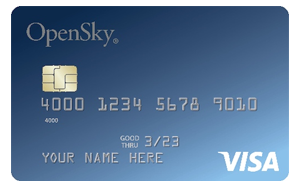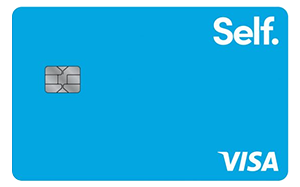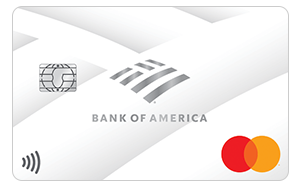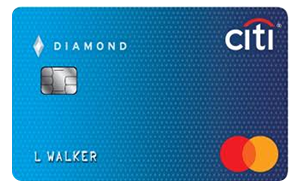Credit is an essential part of adulthood. For young adults, it influences not only what terms they can get on their first loans but also the types of apartments they can rent and the amount they’ll pay for services like insurance and utilities.
If you have a child who’s a minor, they won’t be able to open their own credit accounts yet. However, that doesn’t mean they can’t start building credit as a teenager. Here are six things you can do right now to give your teen a head start on credit.
Table of Contents
1. Teach your teenager credit basics
Your credit score is a reflection of your ability to manage your finances and repay your debts. Teaching your teen the fundamentals of financial management is the best thing you can do to help them establish a good credit score early on.
Go over the basics of how credit works and how credit scores are calculated. This will help your teen get an idea of how different actions will impact their credit and how they can avoid common pitfalls people face when building credit for the first time.
Also explain to your teenager what factors affect their credit score and how they’re assessed by the two major credit scoring companies (FICO and VantageScore).
In practice, to maximize their score, your teen should:
- Open a credit account as early as they can. If possible, they should get a credit card at 18, which will give them more time to build the length of their credit history.
- Use that card occasionally but keep their spending low. This will benefit their credit utilization (the amount of credit that they’re using); a lower utilization rate will be better for their score.
- Be very careful not to miss any payments on their new card. This will allow them to build a strong payment history (the single most important factor in every credit scoring model).
Together, those three factors will be responsible for 80% of your child’s credit score, so if they pay attention to them, they’ll be in good shape as they start their credit-building journey.
2. Show your child how to check their credit reports and scores
An important part of building credit at any stage is regularly checking your credit scores and credit reports.
If your teen is under 18 years old, then odds are they won’t have a credit score or report yet (and if they do, they’ll both be pretty minimal). However, teaching your child where to find their credit information will make it easier for them to establish and maintain a good credit score down the line.
You can check your child’s credit in the following places:
- Credit reports: To check their credit reports, go to AnnualCreditReport.com and submit a request for free copies of their TransUnion, Experian, and Equifax credit reports.
- Credit score: Your teen’s credit score won’t show up on their credit report (if they even have a score at all), but they can check your credit scores directly with FICO or through a credit monitoring service.
Credit accounts in your child’s name could be a sign of identity theft
If your teenager has credit reports, it’s important to carefully review what’s on them. Fraudsters commonly use children’s Social Security numbers (SSNs) to open credit accounts because of their clean credit history. If you see accounts that shouldn’t be on your teen’s credit report, immediately file an identity theft report with the Federal Trade Commission and dispute the items with the credit bureaus.
3. Add your teen as an authorized user
Although children under the age of 18 aren’t old enough to get credit cards on their own, you can add your child as an authorized user on your own credit card account.
Becoming an authorized user can boost your credit score. It’s one of the easiest ways to establish credit while you’re young, and one of the only options your teen has for building credit under 18.
Although there’s technically no minimum age for building credit, some banks and card issuers impose a minimum age requirement for authorized users. Use the table below to find out whether your teenager is old enough to be added as an authorized user on your card.
Authorized User Age Requirements for Different Credit Card Companies
| Credit Card Issuer | Age Requirement |
|---|---|
| American Express | 13 |
| Barclays | 13 |
| Discover | 15 |
| US Bank | None specified |
| Capital One | None specified |
| Chase | None specified |
Sources: American Express, Barclays, Discover, US Bank, Capital One, Chase.
Before signing your teenager up as an authorized user, make sure your bank will report their account to the credit bureaus—if they don’t, then your teenager won’t build credit. Some banks only report account information for primary cardholders, and others (e.g., American Express) only start reporting authorized users once they’re 18 years old. 1
4. Let your teen practice with their own bank account
Once your teen has an idea of how credit works, it’s important to allow them to practice managing their own finances. Firsthand experience with budgeting will give them a strong foundation for managing their credit once they enter adulthood.
The easiest way to give your child the experience they need is to open a checking or savings account in their name. If they’re under 18, they’ll need you or another legal adult to apply with them as a joint account owner. 2
Opening a bank account that comes with a debit card can also help your teen get a feel for card transactions. However, make sure to clarify the key differences between debit cards and credit cards and when to use each one for purchases.
5. Be a good role model
Teenagers are at a stage of life where they’re developing their own sense of identity and independence, but don’t underestimate the role you’ll play in teaching them what it means to be a financially responsible adult.
Show your child how you manage your own debts and keep up with bill payments. Talk them through your spending choices and how to differentiate between essential and luxury purchases.
6. Prepare your next steps for when your child turns 18
Even if your child hasn’t yet turned 18, it won’t be long before they’re ready to open their own credit accounts. You can help them build credit at 17 and explore the following credit-building tools for 18 year olds for when their 18th birthday comes around.
Putting your teen’s name on your utility bills
Once your child turns 18, you can put your utility bills under their name to help them build credit. Although you don’t automatically build credit by paying utility bills, using a bill-reporting service like Experian Boost can get those payments added to your teenager’s credit report.
Boost your credit for FREE with the bills you're already paying

Boost your credit for FREE with the bills you're already paying
- Experian Credit Report and FICO® Score updated every 30 days on sign in
- Instantly increase your credit scores for FREE with Experian Boost™
- Daily Experian credit monitoring and alerts
Other than being added as an authorized user, self-reporting these regular bill payments is arguably the best way to build credit as a teenager without opening a new credit account. It might be enough to give your child that extra boost needed so that they can qualify for the best loans and lowest interest rates later in life.
Credit cards for teenagers
Young adults can get a credit card at 18 years old. When used responsibly, starter credit accounts can be an excellent way to build credit and get firsthand experience with debt management.
Unless your teenager has a means of independently supporting themselves financially (such as a steady job), they’ll need you or another adult to cosign their credit card application. This is because of strict requirements imposed by the Credit CARD Act of 2009 on credit card applicants under the age of 21. 3
Once they’re ready, you can explore these popular credit cards for teenagers:
- Secured credit cards: These credit cards have a low credit limit and require a security deposit. However, because they often have low to nonexistent credit score requirements, they’re easy to get for teenagers with no credit score.
- Student credit cards: As the name implies, student credit cards are specifically designed for college students. They’re a great tool for building credit when you have none because of their low credit requirements, although your child may need to prove that they’re a student to be eligible.
Below are some of the best credit card offers currently available for teenagers who are new to credit:
| Credit Card | Best For | Credit Score | Annual Fee | Welcome Bonus | |
|---|---|---|---|---|---|
| No Credit | 300–669 | $0 | |||
| Rewards | 580–739 | $0 | Cashback match | ||
| Travel | 580–739 | $0 | |||
| Visa | 580–739 | $0 | $50 Bonus | ||
| International Students | 580–739 | $0 | |||
| Credit Card | Best For | Credit Score | Annual Fee | Welcome Bonus | |
|---|---|---|---|---|---|
| Secured | 300–669 | $0 | Cashback Match | ||
| Unsecured (No Deposit) | 300–669 | $39 ($0 for the first year if you set up autopay) | |||
| Beginners | 300–669 | $49 | |||
| Students | 580–739 | $0 | Cashback match | ||
| No Annual Fee | 300–669 | $0 | |||
| High Approval Odds | 300–669 | $35 | |||
| Building Credit | 300–669 | $0 | |||
| Credit Card | Best For | Credit Score | Annual Fee | Welcome Bonus | |
|---|---|---|---|---|---|
| No Credit Overall | 300–669 | $0 | Cashback Match | ||
| Starters | 300–669 | $49 | |||
| Students | 580–739 | $0 | Cashback match | ||
| No Credit Check | 300–669 | $35 | |||
| No Annual Fee | 300–669 | $0 | |||
| Unsecured (No Deposit) | 300–669 | $75 for the first year ($48 after) | |||
| High Credit Limit | 300–669 | $39 ($0 for the first year if you set up autopay) | |||
| Instant Approval | 300–669 | $75–$99 the first year, then $99 annually | |||
| Beginners | 300–669 | $0 | |||
| Credit Card | Best For | Credit Score | Annual Fee | Welcome Bonus | |
|---|---|---|---|---|---|
| Secured Overall | 300–669 | $0 | Cashback Match | ||
| No Credit Check | 300–669 | $35 | |||
| Beginners | 300–669 | $25 | |||
| No Annual Fee | 300–669 | $0 | |||
| Bad Credit | 300–669 | $49 | |||
| Rebuilding Credit | 300–669 | $0 | |||
Loans for teenagers
Taking out a loan is another way to start establishing a credit history as a teenager. Your child will legally be allowed to take out any type of installment loan once they turn 18, but there are a couple of loans that are particularly safe and easy for building credit as a teenager:
- Credit-builder loans: Rather than giving you money outright, banks and credit unions offering credit-builder loans put the loan amount in a savings account, which you’ll only get access to after a certain number of payments. This means your child’s payments will be reported to the credit bureaus, improving their credit history, but there’s no risk that they’ll fall deep in debt.
- Student loans: Many teens begin their credit journey by taking out student loans. Federal student loans don’t require a credit check, so your child can qualify even if they’re new to credit. Student debt has a bad reputation, and it’s true that it can be a major financial burden, but student loans do affect your credit score, so the silver lining is that your child can build credit by paying them back.
Although your 18-year-old can also get auto loans and buy things to build credit through retail financing, they shouldn’t borrow money they don’t actually need. Make sure your teenager understands that responsibly managing one or two credit accounts is better than trying to build credit fast by applying for accounts they won’t actually use.
Takeaway: Teenagers can build credit by learning credit basics and getting information added to their credit reports.
- Teenagers under 18 can’t legally open their own credit account, but you can begin by teaching them credit basics and how to monitor their credit scores and reports.
- You can add your child as an authorized user to your credit card account to start building up their credit before they turn 18.
- To help your teen establish good financial habits that may lead to good credit later in life, help them open their own checking or savings account and manage their own money.
- Once your child turns 18, they can start building a credit history by getting a credit card or loan.
- You can also put utility bills under your child’s name and self-report the payments to the credit bureaus to allow them to establish a credit history without a credit account.




